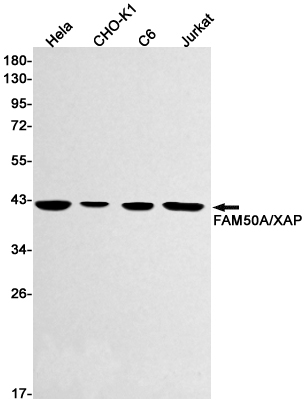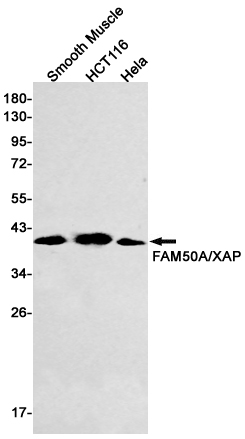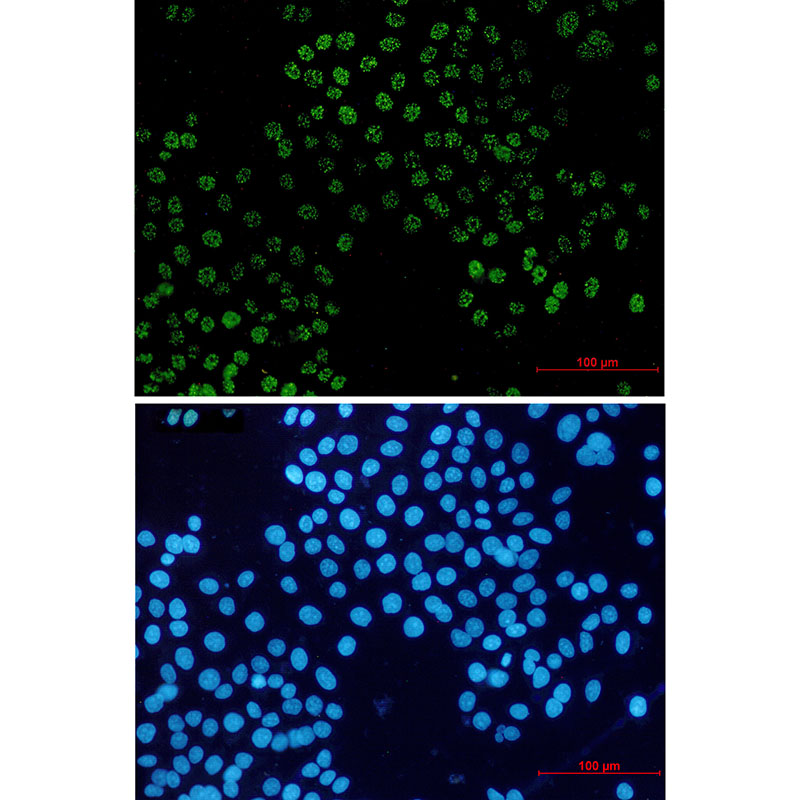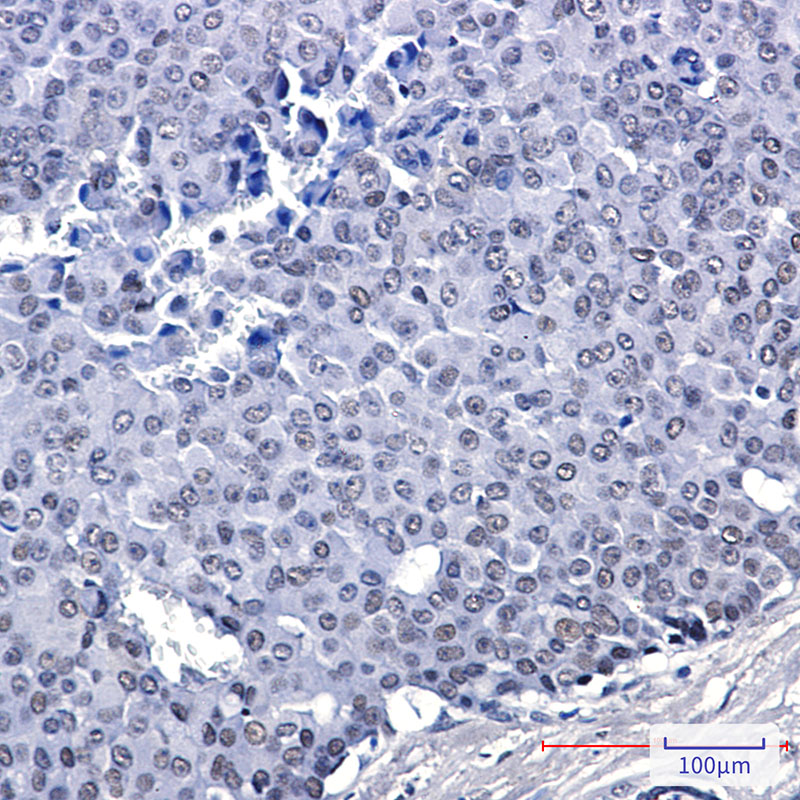



| WB | 咨询技术 | Human,Mouse,Rat,Hamster |
| IF | 1/20 | Human,Mouse,Rat,Hamster |
| IHC | 1/50-1/100 | Human,Mouse,Rat,Hamster |
| ICC | 1/50-1/200 | Human,Mouse,Rat,Hamster |
| FCM | 咨询技术 | Human,Mouse,Rat,Hamster |
| Elisa | 咨询技术 | Human,Mouse,Rat,Hamster |
| Aliases | family with sequence similarity 50 member A; 9F; XAP5; HXC26; HXC-26; DXS9928E |
| Entrez GeneID | 9130 |
| WB Predicted band size | Calculated MW: 40 kDa; Observed MW: 40 kDa |
| Host/Isotype | Rabbit IgG |
| Antibody Type | Primary antibody |
| Storage | Store at 4°C short term. Aliquot and store at -20°C long term. Avoid freeze/thaw cycles. |
| Species Reactivity | Human,Mouse,Rat,Hamster |
| Immunogen | A synthetic peptide of human FAM50A |
| Formulation | Purified antibody in TBS with 0.05% sodium azide,0.05%BSA and 50% glycerol. |
+ +
1. **"FAM50A regulates mitotic progression by interacting with SMC3 in glioblastoma"** by Zhang et al.; 研究通过FAM50A抗体进行免疫共沉淀和Western blot分析,揭示FAM50A与SMC3蛋白相互作用,调控胶质母细胞瘤细胞的有丝分裂进程。
2. **"FAM50A deficiency leads to altered DNA repair and genomic instability"** by Lee et al.; 利用FAM50A特异性抗体进行免疫荧光染色,发现FAM50A缺失导致DNA损伤修复异常,与基因组不稳定性及癌症易感性相关。
3. **"The role of FAM50A in X-linked intellectual disability: Insights from patient-derived cellular models"** by Rossi et al.; 通过抗体介导的蛋白表达分析,证实FAM50A突变引起核定位异常,影响神经元发育,关联X染色体连锁智力障碍。
4. **"Structural and functional characterization of FAM50A as a regulator of mRNA splicing"** by Kimura et al.; 采用FAM50A抗体进行质谱与免疫沉淀实验,揭示其与剪接体组分相互作用,调控选择性剪接在细胞分化中的作用。
(注:以上文献为示例,实际引用需根据具体论文调整。)
FAM50A (Family with Sequence Similarity 50 Member A) is a gene located on the X chromosome, encoding a protein implicated in mRNA processing and cell cycle regulation. The FAM50A protein contains a zinc finger-like domain, suggesting potential roles in nucleic acid binding or protein interactions. Antibodies targeting FAM50A are essential tools for studying its expression, localization, and function in cellular contexts. Research has linked FAM50A to neurodevelopmental disorders, particularly X-linked intellectual disability syndromes, where mutations or dysregulation may disrupt neuronal development. Additionally, FAM50A has been studied in cancer biology, with altered expression observed in malignancies like leukemia and breast cancer, potentially influencing tumor progression or therapy resistance.
FAM50A antibodies are widely used in techniques such as Western blotting, immunohistochemistry, and immunofluorescence to assess protein levels and subcellular distribution. Some studies highlight its nuclear-cytoplasmic shuttling behavior, hinting at dynamic roles in gene regulation. Commercially available antibodies vary in host species, clonality, and epitope specificity, requiring validation for experimental reliability. Challenges include cross-reactivity with homologous FAM50 family members (e.g., FAM50B) and tissue-specific expression patterns. Current research focuses on clarifying FAM50A’s molecular mechanisms, particularly its interplay with splicing factors or cell cycle checkpoints, to unravel its pathophysiological and therapeutic significance.
×